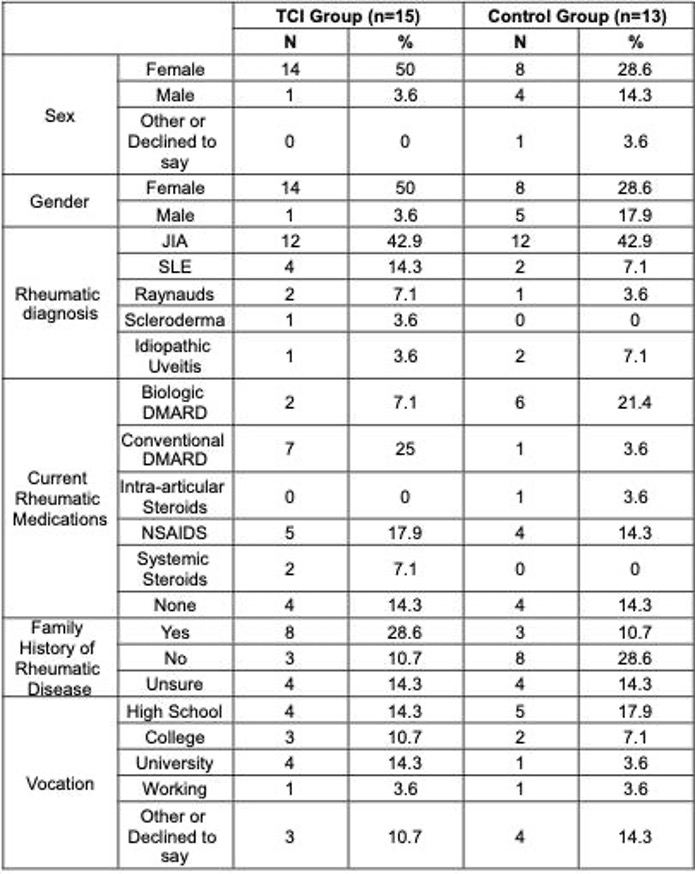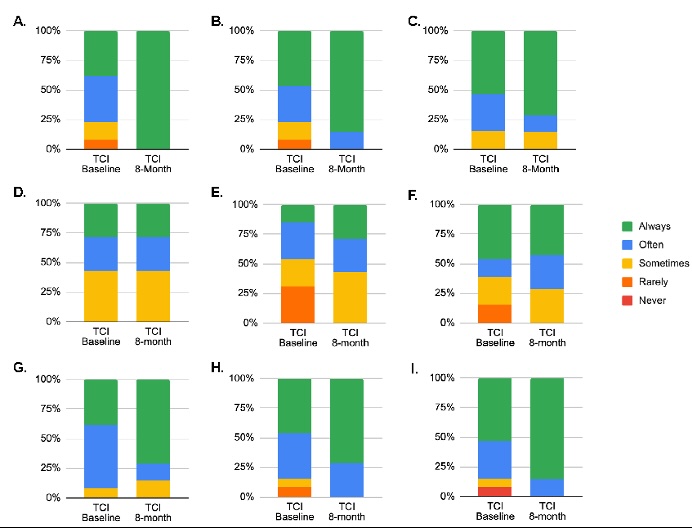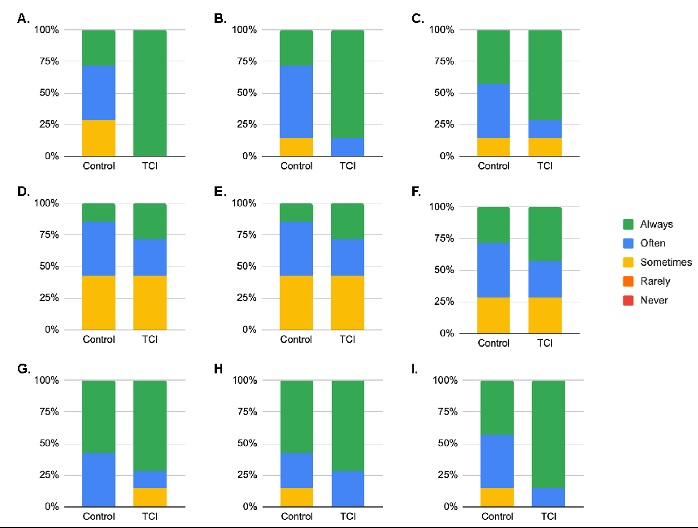Session Information
Session Type: Poster Session C
Session Time: 10:30AM-12:30PM
Background/Purpose: The transition from pediatric to adult healthcare is a vulnerable time for youth with chronic disease, with risks of disengagement from care and subsequent complications of poorly managed disease. Health coaching helps patients gain the knowledge, skills, tools and confidence to become active participants in their care. For youth with a rheumatic disease approaching transfer to adult care, transition coaching may be effective in supporting them psychologically and socially as they gain the skills and tools necessary to independently manage their health. To address this, we designed the TRACER (Transition to Adulthood through Coaching and Empowerment in Rheumatology) study to assess the feasibility of conducting a multi-centred RCT of a Transition Coach Intervention (TCI) in youth transferring from pediatric to adult rheumatology care.
Methods: Youth 17-18-years-old with any rheumatic disease were recruited at their last pediatric rheumatology appointment at McMaster Children’s Hospital or Children’s Hospital at London Health Sciences Centre in Ontario, Canada. Participants were randomized to the TCI or control group. Participants received the Youth Transition Roadmap which reviews five domains of healthcare transition: Self-Advocacy, Medication Management, General Health, Lifestyle Issues and Future Planning related to education and vocation. TCI participants also received virtual one-on-one monthly sessions for 8-months at a time convenient to the participant. Primary feasibility outcomes were consent rate (≥85%), enrollment from London ( >30%), TCI completion rate (≥90%), and completion of data collection (≥90%). Secondary clinical outcomes collected at baseline, 8- and 11-months included the Transition-Q (transition readiness questionnaire; 1-100), and PROMIS® self-efficacy measures.
Results: Of 66 patients approached, 30 (46%) consented, 16 (53%) of whom were enrolled from London. Of those consented, 2 withdrew after consenting but prior to collecting baseline data and starting the intervention. Participant characteristics are shown in Table 1. To date, 15 (50%) have reached the 8-month follow-up period. TCI attendance rate was 95.8%. For those who have received 8-month follow-up questionnaires, 90.7% of assessments were completed. At baseline mean (SD) Transition-Q scores for the TCI group were 72.3 (18.1) and 65.4 (15.3) in the control group. PROMIS responses in the TCI group appear to show an increase in self-efficacy after the TCI intervention (Figure 1). PROMIS responses at 8-months in both groups are shown in Figure 2, which suggests a trend in improvement in all domains.
Conclusion: Our study met all feasibility outcomes except consent rate, suggesting that we will need to approach a large number of patients in order to meet our sample size target in a large multi-centre RCT. PROMIS self-efficacy measures appear to improve after the TCI; however, sample size is limited, and data collection is ongoing. These findings will serve as a foundation for a robust, multi-centred RCT of a transition coaching intervention with the goal of enhancing the physical, mental, and social well-being of youth with rheumatic disease transitioning into adult care.
To cite this abstract in AMA style:
Clarke M, Herrington J, Cellucci T, Heale L, Matsos M, BEATTIE K, Berard R, Batthish M. TRACER: Transition to Adulthood Through Coaching and Empowerment in Rheumatology, a Feasibility Study [abstract]. Arthritis Rheumatol. 2024; 76 (suppl 9). https://acrabstracts.org/abstract/tracer-transition-to-adulthood-through-coaching-and-empowerment-in-rheumatology-a-feasibility-study/. Accessed .« Back to ACR Convergence 2024
ACR Meeting Abstracts - https://acrabstracts.org/abstract/tracer-transition-to-adulthood-through-coaching-and-empowerment-in-rheumatology-a-feasibility-study/



